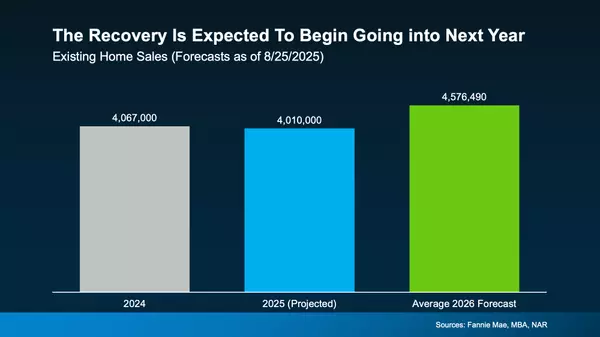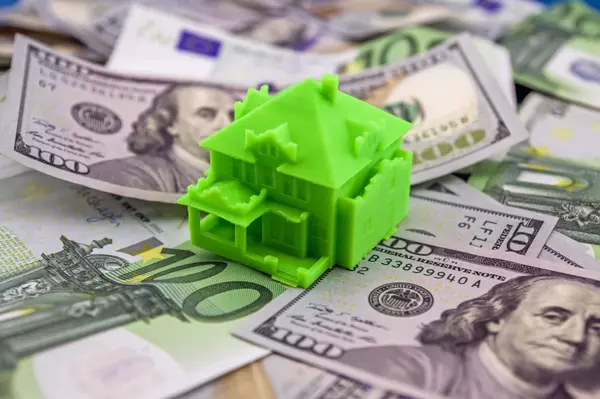Buy vs Rent BREAK-EVEN Timeline
Often, the decision to buy vs rent comes down to an expected break-even timeframe, especially for my military friends who move every 3-5 years. At what point does it make financial sense to buy?
Besides average-case numbers, there are risks to consider in this decision as well... for instance, when choosing to rent, a person is typically looking at relatively fixed costs with low cost variability as the impact of rent growth is generally very small compared to the impact of variability on home price appreciation.
For the homebuyer, variation in market prices can make a bigger impact on the cost/benefit of the decision. For instance, a difference of 1.5% home price appreciation would be $4,500 on a $300,000 home, whereas a 1.5% difference in rental appreciation would mean a $342 difference on $1,900/mo base rent.
To this end, I'll take an average, bear, and bull case for home price appreciation and rent growth and see when the break-even point comes for a purchase. Here are my assumptions:
Appreciation:
-
Bear case: 1% annual appreciation
-
Average case: 4.5% annual appreciation
-
Bull case: 8% annual appreciation
Rent growth:
-
Bear case: 6% annual growth
-
Average case: 3% annual growth
-
Bull case: 0% annual growth
Homeownership:
-
Maintenance: 1% of home price per year
-
Insurance: 0.6% of home price per year
-
Taxes: 0.35% of home price per year
-
Loan: 100% LTV 30-year fixed VA loan at 6.25% (today's numbers - 2/7/2025)
-
Buy-side closing costs: 3% of home price
-
Sale-side closing costs: 6% of home price
-
Inflation (cost of maintenance & insurance): same rate as rent growth
-
No opportunity to refinance, ever
-
No house-mates to provide rental income
Rent:
-
Year 1 rent: $1,900/mo
Scenario 1: Homeowner's Worst Case & Renter's Best Case
Assumptions reminder: 1% appreciation, 0% rent growth


Break-even timeline for Scenario 1: Shortly after year 20
Scenario 2: Average for Homeowner & Renter
Assumptions reminder: 4.5% appreciation, 3% rent growth


Break-even timeline for Scenario 1: Between years 2 & 3
Scenario 3: Homeowner's Best Case & Renter's Worst Case
Assumptions reminder: 8% appreciation, 6% rent growth


Break-even timeline for Scenario 1: Between years 1 & 2
In reality, conditions will change over time with some years producing less appreciation for buyers and others producing fantastic appreciation. Typically, both home prices and rents go up over time at 4.5% appreciation and 3% rent growth in CO Springs. According to our analysis, the decision to buy vs rent can break even anywhere between year 1 and ~22, but the average is between years 2 and 3.
If you're going to live in a home for at least 3 years, you're more than likely going to come out ahead if you buy a home rather than rent.
If you're at all interested in investing in real estate as a rental property owner, you should definitely buy. Primary residence interest rates and down payments are low - the ideal situation for an investor. Even if the property doesn't cashflow after placing a tenant when you move out, you'll still grow your equity through appreciation and debt-paydown. And if you make less than $150,000 in a year, you may be able to utilize depreciation to offset some or all of your income taxes.
What we didn't discuss was the opportunity to rent part of the home while you're living in it to offset costs or the opportunity to refinance if rates drop below the initial interest rate on the loan. Both of these opportunities make buying a home more attractive than these scenarios suggest and add to the wealth of the buyer.
When someone tells me they're planning on renting because they'll only be in the home for X number of years, it tells me they're either pessimistic about the prospects of home price appreciation, optimistic that rents won't grow quickly, risk averse, or haven't looked at the numbers themselves. There isn't one correct answer to this question - for instance, if you're only going to live somewhere for 1-2 years, don't plan to rent a part of the house while you're living there and aren't planning on utilizing the home as an investment after moving out, then it may not make sense to buy. If, however, any of those variables flip or you're expecting to live in the home for 3+ years, you're probably better off buying a home.
I hope this article helps you see some possible and likely financial outcomes for buyers and renters so you can make the decision for yourself. If you have any questions or would like help running the numbers for your situation, I'm happy to help! I love numbers and the power they give us to make informed decisions.
Categories
Recent Posts

"My mission is to help people use real estate to achieve their dreams. If you or someone you know are considering buying or selling a home, give me a call!"










